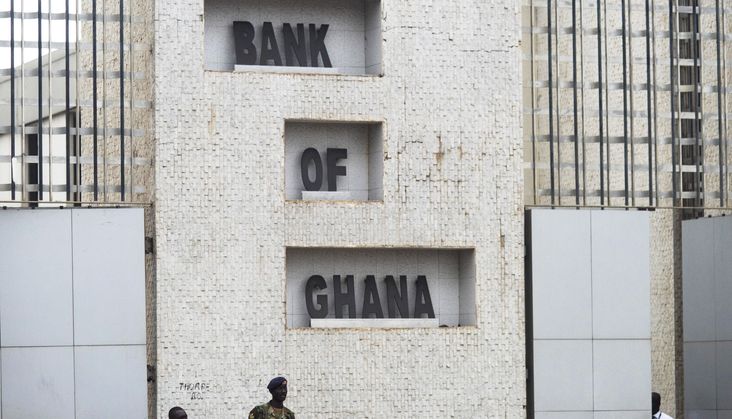
Audio By Carbonatix
Government and the Bank of Ghana have been urged to immediately design and implement a framework to assist local banks with funding.
Banking consultants Dr Richmond Atuahene and K. B. Frimpong hold the view that the Domestic Debt Exchange Programme has affected the banks.
They explained in a report that the banks hold GH₵50.6 billion of the total GH₵137.3 billion debt that was the target of the restructuring. These government securities that the banks hold form a large part of their assets.
They noted that by merely participating in the programme, significant changes have occurred in the balance sheets of the banks.
“Due to a combination of coupon or interest rate reduction, and maturity extension with below-market coupon rates of 19.3%, the capacity of the banking sector to absorb losses had been lower, as the banking sector capitalisation only took place three years ago.
"When banks are able to absorb losses without having to resort to a recapitalisation from the government, the fiscal consolidation and/or burden-sharing by other creditors required to restore debt sustainability would be smaller,” portions of the report stated.
At least nine banks have been identified by banking experts as being on the verge of insolvency as the domestic debt restructuring programme is said to have wiped off the value of the bank’s assets leaving them quite fragile.
Local banks participated in the programme geared at making Ghana’s debts sustainable but it appears its success may have lasting negative effects on the financial sector.
The Banking consultants recommended for the Bank of Ghana to identify gaps in crisis management and that bank resolution frameworks should be identified prior to the domestic debt exchange programme.
“Gaps in early intervention, resolution, deposit insurance, and central bank liquidity assistance for which Bank of Ghana in the process of establishing Financial Stability Support Fund as well as the coordination arrangements among these elements should be addressed before the Domestic Debt Restructuring.”
They added that “standard financial safety net components need to be supported by adequate contingency planning for each stage.”
Latest Stories
-
Living with Hypertension and Diabetes: Mary Kessewaa’s daily fight for health
3 hours -
From Young Nurse to Hypertension Champion: Betty Twumasi Ankrah’s Journey
4 hours -
Ghana to mark Africa Safer Internet Day on February 10
5 hours -
Ghislaine Maxwell refuses to answer questions about Epstein in congressional hearing
5 hours -
King Charles’ ‘profound concern’ as police consider Andrew claims over Epstein
5 hours -
‘A Tax For Galamsey’: Dr Manteaw warns NDC against shielding ‘galamsey’ DCEs
6 hours -
When a TV is not a vote but the Gospel according to the television set
6 hours -
Ghana can significantly expand domestic revenue without raising tax rates -UGBS Finance Professor
6 hours -
Policeman killed in bloody robbery on Zebilla–Widnaba road
6 hours -
Cedi under seasonal pressure as Q1 demand intensifies; one dollar equals GH¢11.80 at forex bureaus
6 hours -
Roads Minister rejects Minority’s claim of downgrading Suame Interchange Project
7 hours -
Eco-Africa Network demands dismissal of culpable officials in explosive JoyNews exposé
7 hours -
Ayawaso East vote-buying: Party will take decision after committee findings – NDC
7 hours -
Ayawaso Zongo Chiefs warn of possible chaos if NDC annuls disputed primary
7 hours -
I didn’t see failure as an option: Chicago Fire forward Shokalook
7 hours

